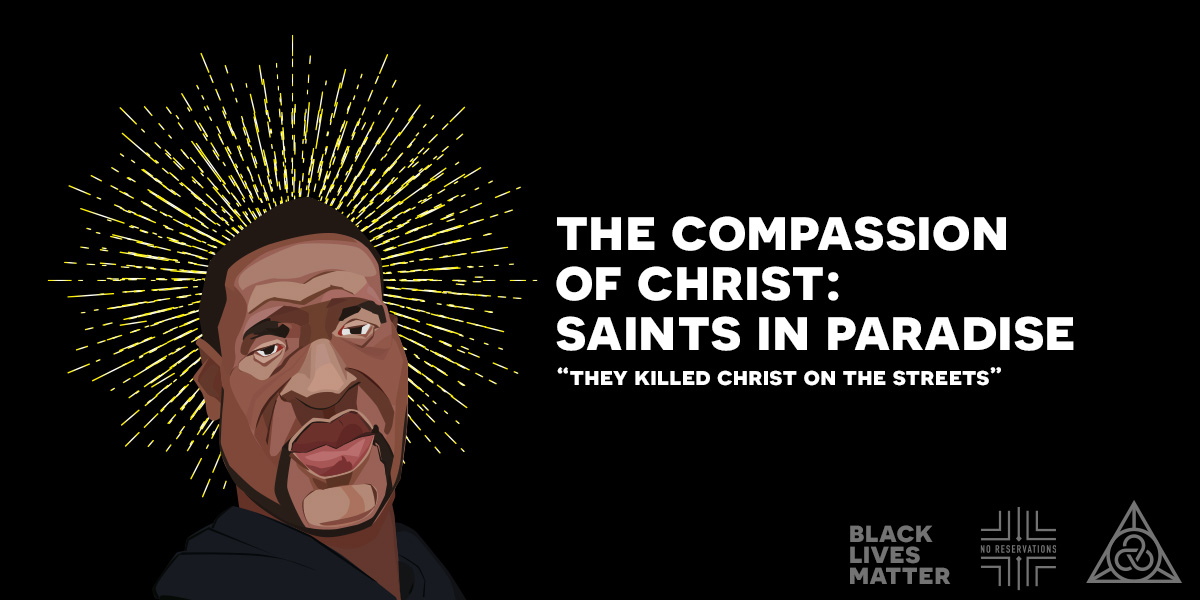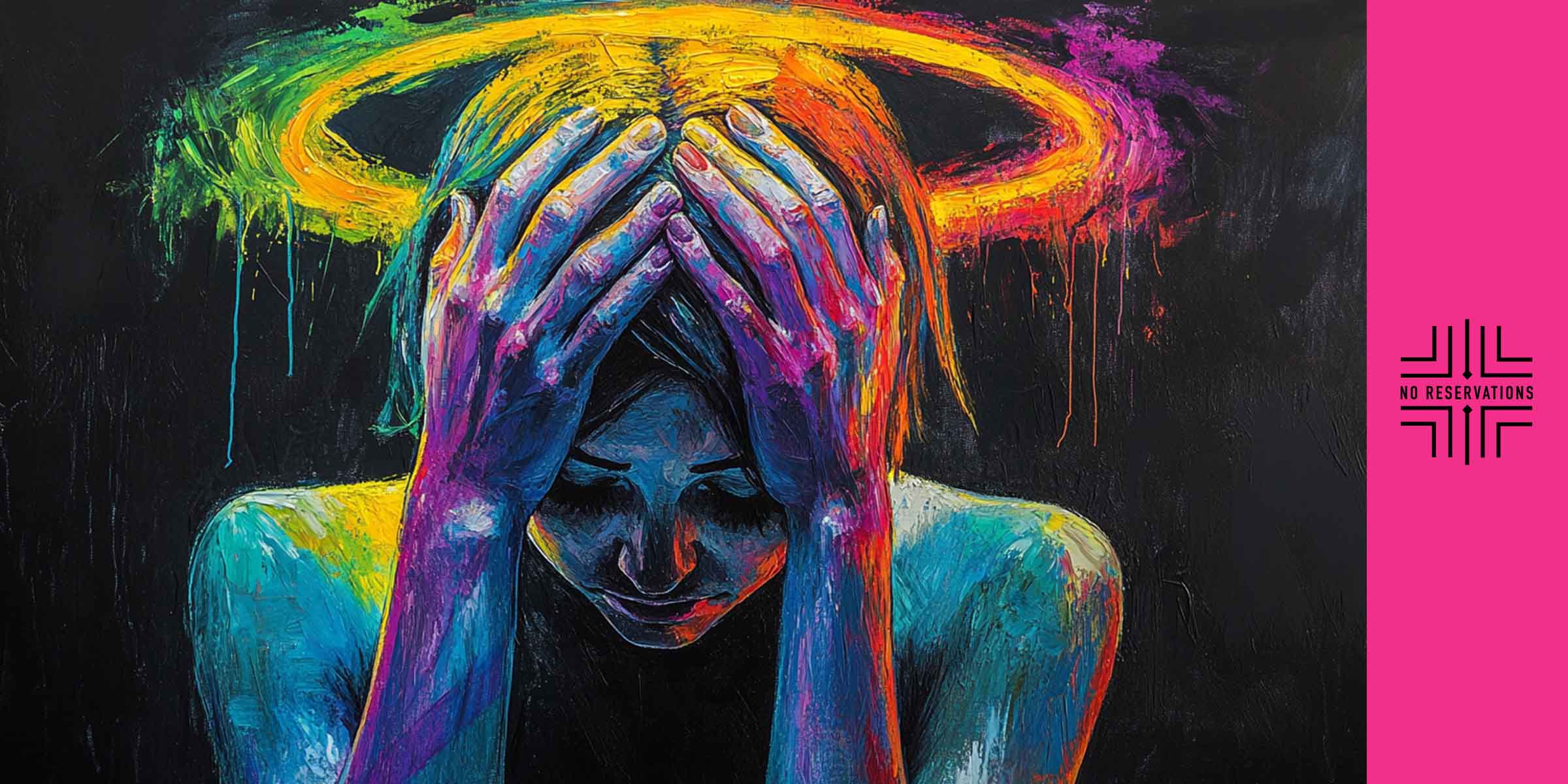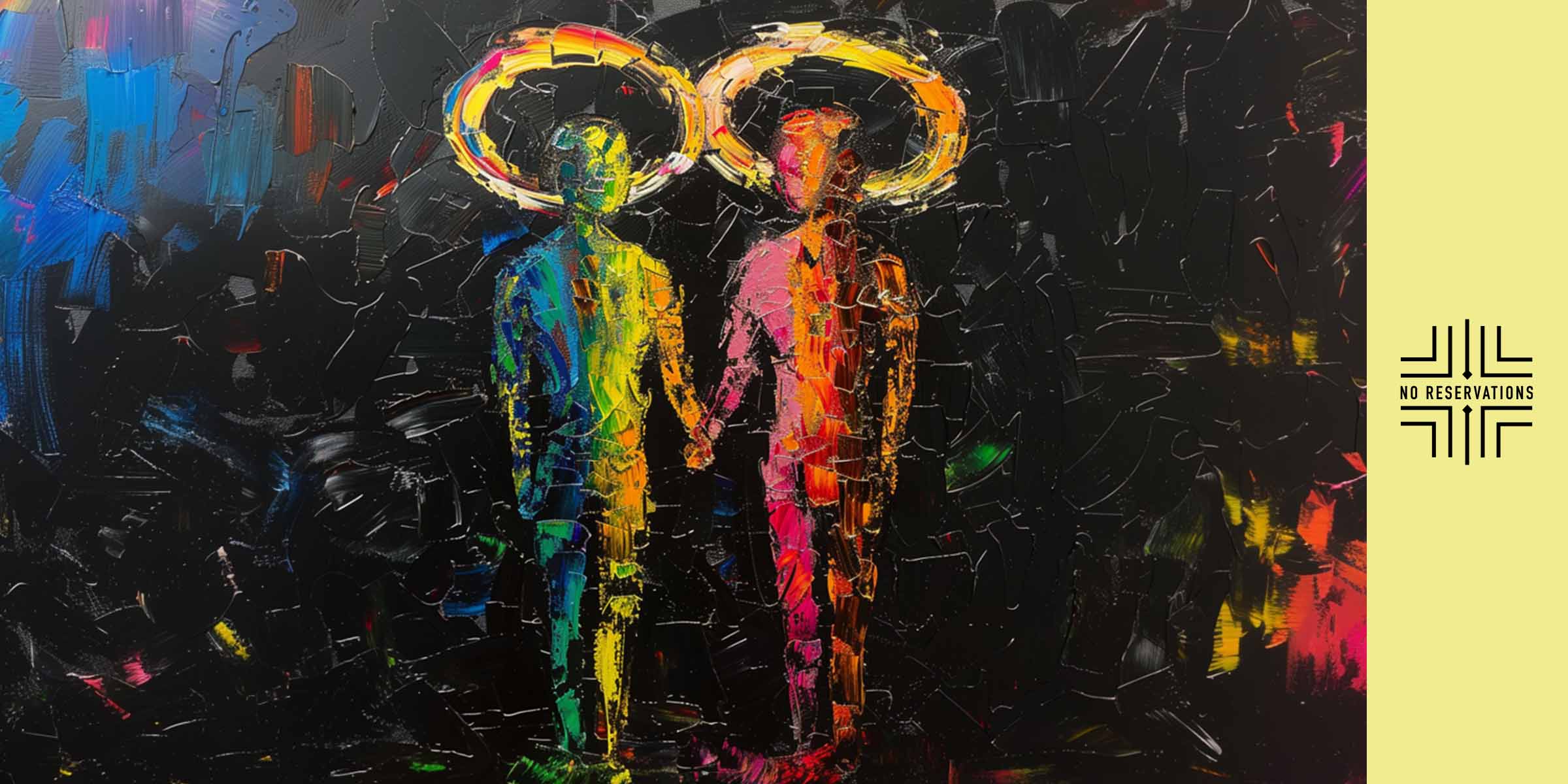Too many of us have gone deaf to the calls of Liberation by those who we share 99.9 percent of our DNA with.
John 15: 13-15 Collective Edition (CE)
13 There is no greater love than to give up one’s life for the life of another. 14 We are all called to awaken the Christ in us, through the commandments of the One. 15. We do not live in darkness any longer, for we are now meant to shine the light of the One who came to open our minds, ears, and mouths towards the realization of the collective embodiment of love for all of Humanity.
We Have Lost Sight of Our Shared Humanity
As a society, as a nation, as a people, we have lost sight of one another. We have forgotten our shared humanity and have allowed the worst aspects of the human condition to take root within us, giving voice to our fears, anger, regrets, and generational traumas.
These voices often emerge loudly, manifesting as shares or reposts on our social media platforms. Consequently, we disseminate memes and articles that align closely with our own worldviews, thereby reinforcing our perceived truth.
After all, the person on the other side of that social media interaction would never share something untrue, right? For instance, my Aunt Karen is a doctor who attends church twice a week and loves Christ fervently. So, if Aunt Karen is sharing a post listing all the offenses that George Floyd committed before his death, she must be onto something.
However, in reality, Aunt Karen’s decision to share a list of offenses without condemning what happened to Floyd is the equivalent of stating that someone with a less-than-perfect past deserves to die in broad daylight, surrounded by spectators, at the hands of those meant to protect and serve the public. It’s as if Aunt Karen has adopted the age-old practice of public executions, akin to the spectator sport held in Roman arenas of the past, making her a bystander endorsing state-sanctioned killings of those labeled as criminals or thugs by the state.
But when you share that post, and it ends up on your social media wall, you may start to question: despite that list of offenses, which lack verifiable links to confirm their accuracy, did Floyd deserve to die? Does anyone deserve to die like early Christian martyrs as state-sanctioned entertainment for the masses? If that’s the case, why is Aunt Karen sharing these posts and memes on her wall, especially when she knows that many people respect her opinions?
Do Unto Others as You Would Have Them Do Unto You
When I was young, I learned a fundamental lesson: Treat everyone you meet with respect, humility, and mutual compassion. Regardless of whether a situation is negative or positive, place yourself in others’ shoes, adjusting your response to accommodate their lived experiences. This lesson instructed me to accept the entirety of the individuals with whom I interacted, thereby helping me understand the motivations behind their behavior, and allowing grace and compassion to flow freely between us. If we acknowledge the complexities underlying others’ actions, we are better able to glimpse their core selves, and, in doing so, encounter the Christ within them.
This lesson lies at the heart of the Golden Rule, a universal principle found in many of the world’s faith traditions. It calls us to self-reflection, helping us understand how we want to be loved and treated, and to recognize our self-worth.
By understanding how we want to be loved, we can then love others in the same manner. Many of us yearn for divine grace to liberate us from our pasts and our deepest regrets. We want to be loved unconditionally and celebrated for our accomplishments and the gifts we bring. We fear vulnerability, having experienced pain and anticipating future hurts. We yearn for happiness during our finite existence, hoping to live fulfilled lives surrounded by those who love and accept us.
However, our reality often obscures our true selves through traumas passed down by our parents, families, and society. For many, every negative action against us dims our inner light, setting us on a course that embraces the sins and traumas of previous generations. This pattern becomes our relational template, engendering self-destructive cycles that act as internal demons, separating us from our true selves and diminishing the love we know we deserve.
But this is not the only model available to us. As part of this beloved community, we have a template for humanity’s evolution grounded in love, hope, joy, and mutual compassion. This template is Christ, as revealed to us in the person of Jesus, a concept that exists within all of us. If Christ is the model for an evolving humanity, why can’t we live up to that ideal?
The First Century World of Jesus
The first-century world of Jesus differed significantly from our own, primarily due to the chasm of nearly 2000 years of history separating us. Our current world, by contrast, is less than a century old. In Jesus’s time, power, wealth, and prestige were concentrated in the hands of a few, their status distinguished by birth, geographic location, family connections, and their capacity to wield violence and malevolence. Those not privileged by birth were often trapped in systems of control and power, living and dying as figurative and occasionally literal slaves. These systems pitted the few against the many, maintaining their order through politics, religious practice, and force. Caesar was regarded as a god, and the aristocracy, landowners, military, and religious elites were seen as divinely chosen to serve this earthly deity. However, for Jesus, this societal construct did not align with the reality revealed to him.
Compassion is the First Step Toward Liberation
In both the first-century world and our own, Jesus recognized compassion as the first step toward liberation, and this compassion begins within us. The Gospels brim with instances where Jesus, observing the crowd, is moved by compassion to take action steeped in love. As the embodiment of Christ, Jesus realized that to genuinely love others, we must first extend compassion and grace to ourselves. Consequently, Jesus challenges us to shed the aspects of our identity that ensnare us in self-destructive cycles created by the actions of others.
No one is born evil, racist, angry, hateful, or power-hungry. These traits are passed down, resulting from our parents’ or caregivers’ inability to liberate themselves from their own suffering, pain, and the generational traumas inherited from their ancestors. This is why Jesus speaks of dismantling toxic family structures as a step toward self-liberation. We must let go of everything we have known to be reborn into a new life sparked by the awakening of Christ within us all. This awakening begins with compassion for all of humanity, irrespective of the self-destructive cycle motivating them.
Rediscovering Our Shared Humanity
In the same way that Jesus was moved by compassion towards actions for liberation, we, too, must be driven by compassion towards a collective effort for the same goal. In today’s world, we have lost sight of the fact that we no longer live in the same world as that of 2000 years ago, even though classical power structures persistently operating in our time aim to tether us to the past.
Owing to our technological and scientific advancements, our world is less than 100 years old. Let’s recall what we currently understand about humanity. Our ability to map human DNA has revealed that beneath all the social labels used to divide us, our genetic makeup is strikingly similar. We all descend from a primordial Adam and Eve, making each of us siblings to one another. Some even carry DNA from other human species, like the Neanderthals of prehistoric Europe.
Today’s world is a construct of the Roman world and the empires that preceded it, continuing to rule under the misguided belief that the few are entitled to power over the many. This power originates from violence and generational enslavement of people’s hearts and minds to a broken and antiquated system.
Choosing Compassion
I am here to assert that there have been numerous historical attempts to disrupt this oppressive system. For us today, Jesus represents one of these attempts. Christ defied the prevailing norms by calling the weak strong and the poor righteous, effectively turning the world of the first century on its head. Christ captured the hearts and minds of people across all strata of society—not just the poor but also the wealthy, not only the oppressed but also those with prestige and power.
Christ bridged these divides not through violence but through love, realized through compassion. Christ recognized that, like many of us today, most people do not occupy the polar extremes of any conflict, despite society’s attempts to make us believe otherwise. The majority of us reside within the spectrum between these two extremes, our positions informed by our unique experiences and emotions.
Those who live in abundance can often struggle to grasp the lived realities of others. However, compassion enables these individuals to empathize with those oppressed by their comforts and obliviousness. Becoming aware that those continually struck by systemic oppression protest not to incite anarchy but out of a deep-seated feeling that their intrinsic humanity is not being recognized. Their internal Christ is being metaphorically strangled in the streets. Each of us exists somewhere within this spectrum. So why not reject both ends of this ideological binary and embrace compassion through authentic dialogue and mutual understanding?
They Don’t Need Saints
Too many of us have become deaf to the cries for liberation from those with whom we share 99.9% of our DNA. Too many of us have become silent in the face of violence and aggression perpetrated against those our society has deemed “less than” human. We recognize that our fear, pride, and personal traumas drive our inaction. We understand that we are simply cogs, caught in our own self-destructive cycles. Yet, at the heart of our humanity, we acknowledge the liberating power of Christ, reflected in the first-century human named Jesus, who calls us to disrupt the undisturbed through compassion and love.
Being a saint in paradise is simple. However, those who suffer, those who have been killed by those sworn to protect them, those labeled “terrorists” by our leaders, those scarred by the generational traumas of violence and terror — they do not inhabit a paradise. Those oppressed by outdated social contracts don’t need saints. They need you and me to mirror the Christ present within our divine cores, to radiate compassion and grace in a collective effort to shatter their chains of oppression, and by doing so, free ourselves from our own self-destructive cycles.
Once we commence loving others, it becomes impossible to harbor hatred toward them. To love others authentically, we must be willing to discard all the barriers that separate us from the reality that God resides within each one of us. We are all interconnected and forged from the same stardust as all of Creation and the Universe itself.
So, say we all. Amen.
By: The Collective Awakening & No Reservations Group





